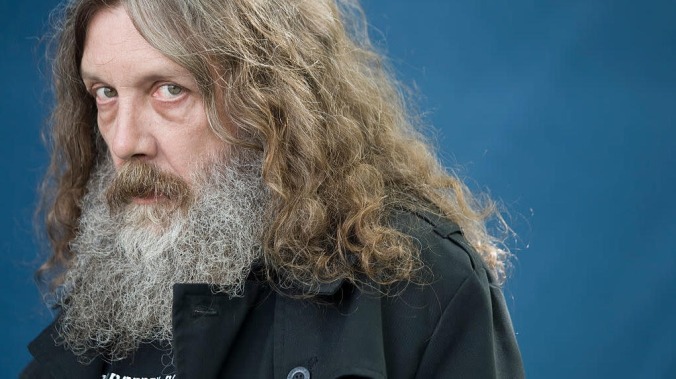This seems like a good time to revisit Watchmen co-creator Alan Moore's thoughts on modern superhero movies

When Martin Scorsese dared to venture a less-than-glowing opinion of Marvel’s omnipresent superhero movies, something snapped in the collective consciousness. Suddenly, with the high drama of a cinematic universe in which beautiful people in tights beat each other up to save the universe, a great battle began to rage across the internet. Could Scorsese, as one of the world’s most acclaimed filmmakers, have a valid point to make about the state of mainstream film? Or is he just some old jerk who doesn’t enjoy CGI punch-ups and has to, by offering an opinion, spoil it for everyone who enjoys that sort of thing?
Weeks into the battle, we’ve grown no closer to the answer that would provide us the long-awaited ceasefire. Even after Scorsese wrote a reasonable, well-articulated elaboration on his opinion, Marvel stars, studio heads, and Disney executives stoked the flames with an Avengers-style group defense of their beloved, money-printing turf. Obviously a stronger weapon was needed by the opposition—and that weapon is a nuclear grade superhero put-down by none other than comics giant and Watchmen co-creator Alan Moore.
As Esquire covered in an article published earlier today, a 2016 interview between Moore and Brazilian writer Raphael Sassaki recently surfaced thanks to the Alan Moore World fan site. In it, Moore is asked for his thoughts regarding how superheroes have had an “impact…in our culture” and why he believes “people [are] fascinated by alternative realities.”
Moore doesn’t waste words. “I think the impact of superheroes on popular culture is both tremendously embarrassing and not a little worrying,” he begins. “While these characters were originally perfectly suited to stimulating the imaginations of their twelve or thirteen year-old audience, today’s franchised übermenschen, aimed at a supposedly adult audience, seem to be serving some kind of different function, and fulfilling different needs.”
The response continues:
Primarily, mass-market superhero movies seem to be abetting an audience who do not wish to relinquish their grip on (a) their relatively reassuring childhoods, or (b) the relatively reassuring 20th century. The continuing popularity of these movies to me suggests some kind of deliberate, self-imposed state of emotional arrest, combined with an numbing condition of cultural stasis that can be witnessed in comics, movies, popular music and, indeed, right across the cultural spectrum. The superheroes themselves – largely written and drawn by creators who have never stood up for their own rights against the companies that employ them, much less the rights of a Jack Kirby or Jerry Siegel or Joe Schuster – would seem to be largely employed as cowardice compensators, perhaps a bit like the handgun on the nightstand.
Not willing to stop without expressing the fullness of his opinion, Moore completes his answer by saying that “save for a smattering of non-white characters (and non-white creators) these books and these iconic characters are still very much white supremacist dreams of the master race.” By way of a finale, he adds: “In fact, I think that a good argument can be made for D.W. Griffith’s Birth of a Nation as the first American superhero movie, and the point of origin for all those capes and masks.”
While we’re curious to see how Bob Iger or Kevin Feige would respond to any of these observations, it’s hard to imagine an equally forceful counterpoint coming from them anytime too soon.
For now, content yourself by reading the rest of the interview and prepare to absolutely ruin your nieces and nephew’s Thanksgivings by explaining to them exactly how their Iron Man toy is just a KKK action figure in disguise.
[via Esquire]
Send Great Job, Internet tips to [email protected]